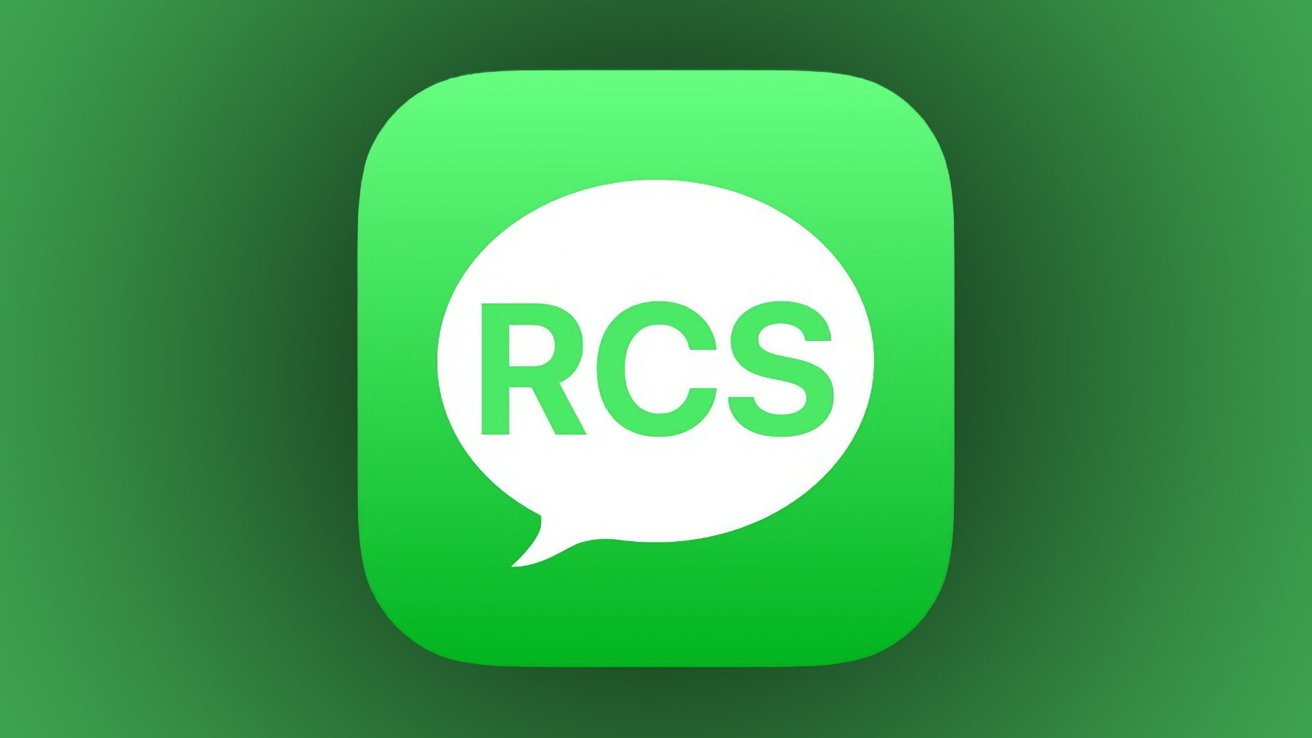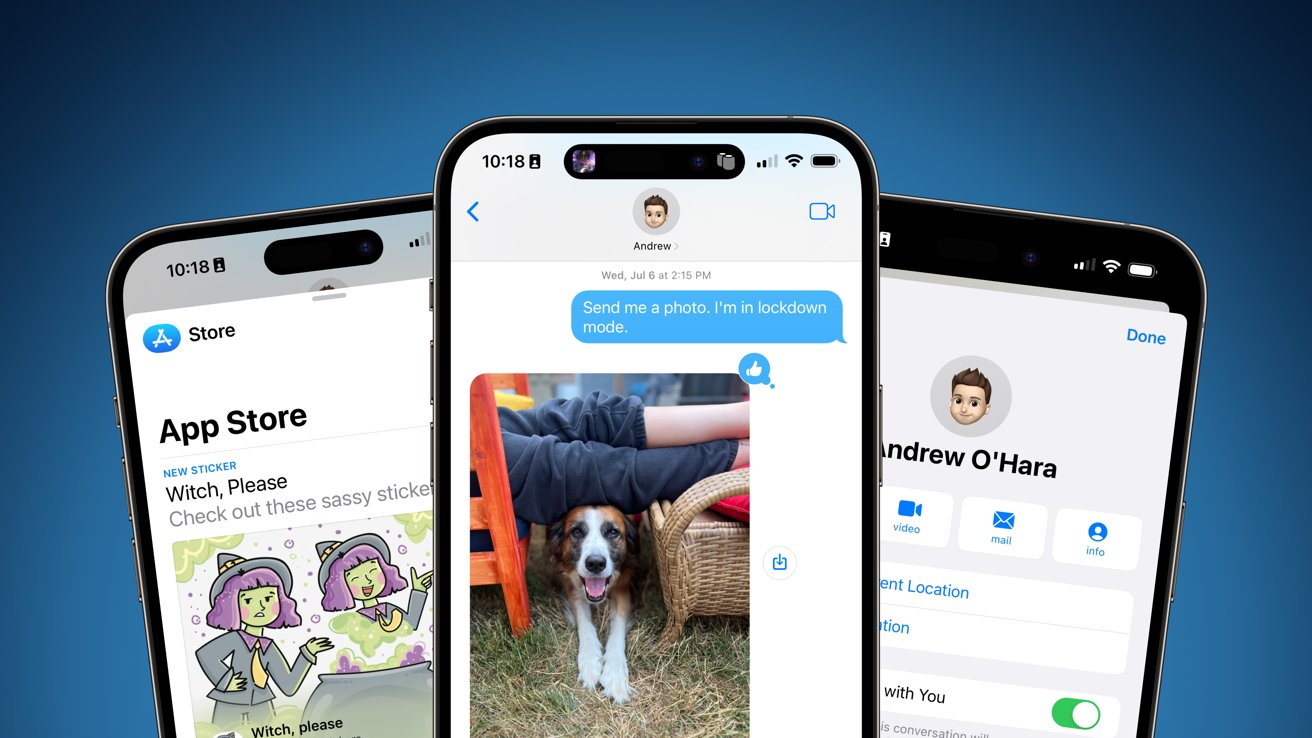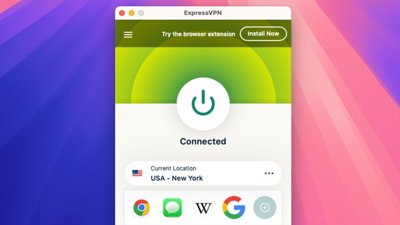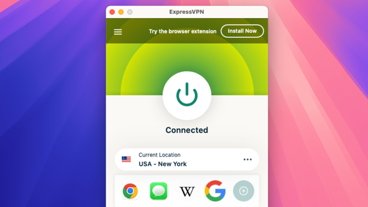Google has been pushing RCS as a standard that will replace SMS, criticizing Apple for not adopting it, and yet its latest update is only one tiny step closer to being suitable as an option for Apple.
Rich Communication Services (RCS) is a new internet messaging standard meant to replace outdated technologies like SMS. However, several problems with its implementation have kept it from becoming widespread, though a year of progress has made it slightly better than half-baked.
On Tuesday, Google made a couple of announcements via its RCS support channel. RCS is now enabled by default, kind of, and group messages are now end-to-end encrypted as long as everyone in them has RCS enabled.
Specifically, here's what Google had to say about its RCS update:
"RCS will now be enabled by default for new and existing users, unless they've previously turned RCS off in Settings. You can always turn RCS on or off in Settings at any time. "
Google says this default setting has come about to ensure everyone benefits from the end-to-end encrypted group chats. That is if you can access RCS.
It's still not immediately clear who gets to benefit from RCS, though it is an increasing population. There is still some confusion around carrier or device support, and Google has attempted to get around this by baking RCS into Messages by Google.
After diving through many Google support documents, there doesn't appear to be a master list of supported devices. That's understandable, given the thousands of handsets running Android on the market.
That's an incredible difference when compared to Apple's iMessage. Every iPhone, iPad, Mac, and Apple Watch comes with the Messages app.
That and iMessage is tied to the user's phone number and Apple ID. It's a foolproof system that ensures users just open their messaging app and start chatting without having to think of what standard they are using.
As long as Android users have to think about whether or not they are using RCS, which version is in play, and what app to use — RCS is a failure. That said, Google does seem to be addressing these problems, albeit slowly.
RCS needs to meet Apple's standards
If Apple is ever going to consider RCS a realistic standard to bring to its Messages app, Google needs to make the case. The many ads from Google blaming Apple for not adopting RCS make it seem like an Apple problem to solve.
Google is the driving force behind RCS. Therefore it needs to make it worth Apple's and its customer's time.
If Apple were to implement RCS in Messages today as an option to message Android users, it removes the simplicity of using Apple Messages and introduces Google's fragmented issues to the platform.
Google has a significant up hill battle on its hands. The company needs to undo decades of carrier bloat, government nosiness, and user norms to get RCS on every platform as a universal standard.
It seems like an impossible task. Instead, we at AppleInsider expect RCS will eventually fall to the wayside as another failed Google experiment while a true new standard steps up, backed by carriers, governments, and tech platforms alike.
In any case, today's update is a step in the right direction. There is still a slim chance Apple could consider RCS on iPhone in the next decade.
Until then, you can "buy your mom an iPhone."
 Wesley Hilliard
Wesley Hilliard








-m.jpg)






 Chip Loder
Chip Loder
 Malcolm Owen
Malcolm Owen
 Marko Zivkovic
Marko Zivkovic

 Christine McKee
Christine McKee


 William Gallagher
William Gallagher




-m.jpg)




29 Comments
Hopefully that hill will get bigger, RCS offers nothing to Apple.
If Google put as much energy into one messaging platform (hello Allo, Hangouts, Google Chat) and made it really good then it has a chance. But that ship has likely sailed. People use WhatsApp or Messenger etc.
I presume the EU will mandate this next.
This article is fundamentally flawed.
RCS is not "a new internet messaging standard". It started as a telcom industry initiative in 2007, and was developed at the GSM Association from 2008 onwards. The goal was to replace SMS, which was a hack that had become incredibly popular.
IMO Google has two goals with this.
1 Stop people leaving Android for iOS due to the iMessage ecosystem.
2 Get hold of a couple of billion AppleIDs Android users will interact with.
If Google is pushing it so furiously there is one play: it's good for Google!
There are plenty of cross platform messaging apps out there. (WhatsApp, Viber, Messenger, Snapchat...)